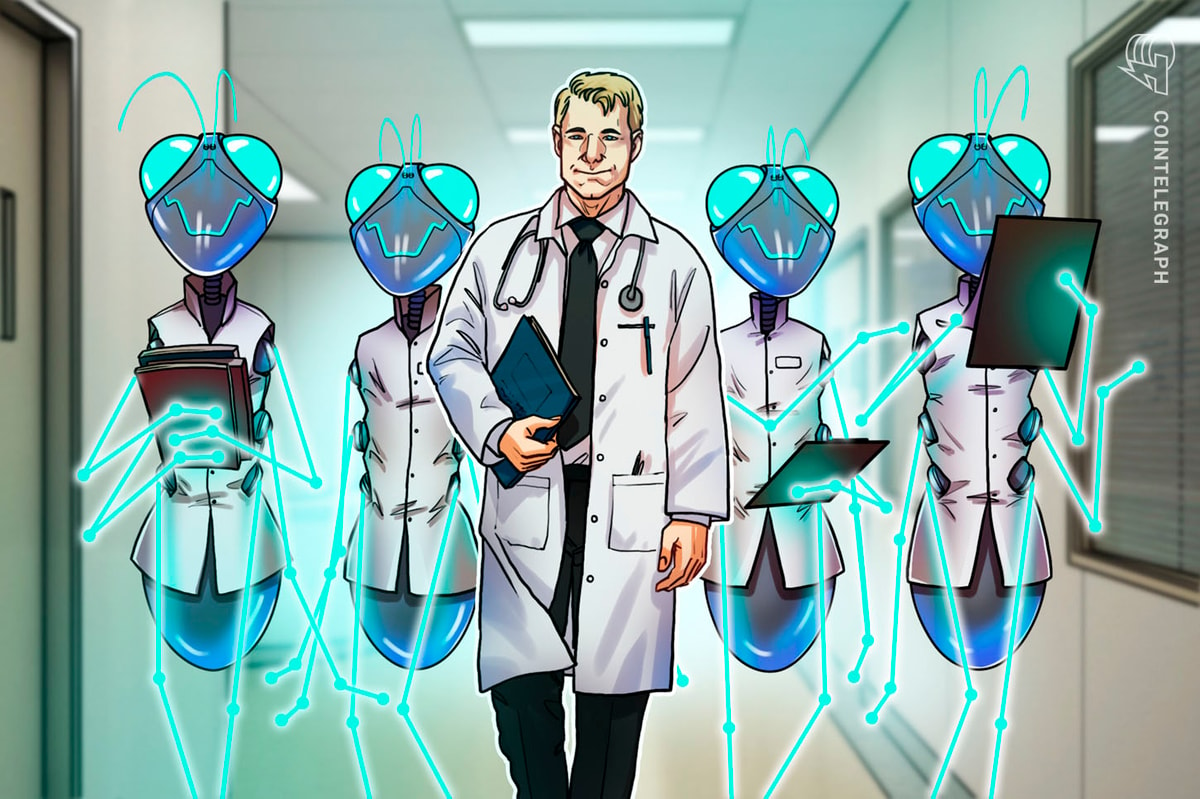Changpeng “CZ” Zhao’s tenure as the CEO of Binance may be over, but the exchange giant’s loss could be a boon for the decentralized science (DeSci) se

Changpeng “CZ” Zhao’s tenure as the CEO of Binance may be over, but the exchange giant’s loss could be a boon for the decentralized science (DeSci) sector.
In a comment on X (formerly Twitter) on Tuesday, Nov. 28, the former Binance CEO revealed an interest in the rapidly developing sector.
Been reading about biotech, thinking about how to use crypto to accelerate research funding there.
Keep building!
— CZ BNB (@cz_binance) November 27, 2023
In November, Cointelegraph reported a United States Justice Department (DOJ) investigation into Binance concluded with a record $4.3 billion settlement by the exchange. As part of the deal, CZ is required to personally pay $50 million to U.S. authorities and step down from his leadership role at Binance.
The transition from head of the world’s largest crypto exchange to man of potentially infinite leisure is unlikely to sit well with the crypto billionaire. The 46-year-old businessman started working in his teen years and expressed no intention to retire before his run-in with the DOJ.
With abundant time and money, CZ’s options are manifold, but should the former Binance chief opt to jump into DeSci, he’ll be joining a dynamic sector encompassing decentralized autonomous organizations (DAOs), biotech, financing, publishing, data storage, foundations and more.
It is also a sector that still has much opportunity. A spokesperson for OpSci, an autonomous research community, told Cointelegraph that DeSci is still in its early days and “finding its footing in the wider scientific community.”
The shape of medicine to come
DAOs are among the major trends fueling the growth of DeSci. Medicine’s next prospective innovation wave has 20 or more DAOs in operation, with more emerging.
One such DAO is VitaDAO, a decentralized collective working to advance longevity research and extend human lifespans. Cointelegraph spoke with VitaDAO awareness steward Alex Dobrin to learn more about the market and what makes longevity science an attractive field of study.
“DeSci offers a new way for people to participate in funding and supporting projects. Instead of relying on traditional methods like for-profit initial public offerings or charity models, DeSci creates a new model,” said Dobrin. “Anyone can contribute both skills and capital while receiving tokens in a more scalable, effective model aligned with humanity since it’s decentralized.”
Magazine: Lawmakers’ fear and doubt drives proposed crypto regulations in US
Dobrin believes that DeSci is particularly important in areas that are either dismissed or forgotten about by the incumbent players.
“The best example is aging research and longevity biotech,” argued Dobrin. “Crypto was also dismissed by the incumbents, but at least anyone could build something from their laptop. Imagine if it needed government grants and required credentials to access expensive equipment and billions of dollars over 10–15 years to deploy a product with the oversight of bureaucratic regulators.”
According to Dobrin, organizations such as VitaDAO can help biotech sciences escape what is known in the industry as “the valley of death.” This valley is said to exist in the gap between scientific discovery and the point at which a pharmaceutical company or venture capitalist is willing to invest.
As a new funding model, VitaDAO and others may bridge that gap, helping to bring novel ideas and innovations to market.
A broken system of misaligned incentives
If you ask DeSci’s proponents why we should decentralize science, they’ll point to the state of the current centralized medical profession — especially in pharmaceuticals.
Tyler Golato, co-founder of Molecule — a decentralized biotech firm inspired by the open science movement — told Cointelegraph that decentralized science can positively impact the medical and pharmaceutical industries.
“Biotech and drug development suffer from a problem of misaligned incentives: patients and researchers who drive most of the value creation are excluded from governance, ownership, upside and consumer choice,” said Golato.
“The majority of the best-selling drugs on the market originated in academic laboratories, but the researchers who invented them and the patients that take them are almost completely disintermediated from the process of their development.”
Gelato argued that better medical outcomes will follow when these incentives are realigned: “Companies favor healthcare economics that require a patient to take a drug every day for their entire life, and are often misaligned with good healthcare outcomes.”
“Decentralization changes this — patients, researchers, parents of children with rare diseases and enthusiasts can contribute funding, work and data to projects in a more open-source way, and be incentivized and rewarded with governance and ownership in projects. This allows for genuinely novel ways to collaborate and develop biotechnology that is fundamentally…
cointelegraph.com

COMMENTS